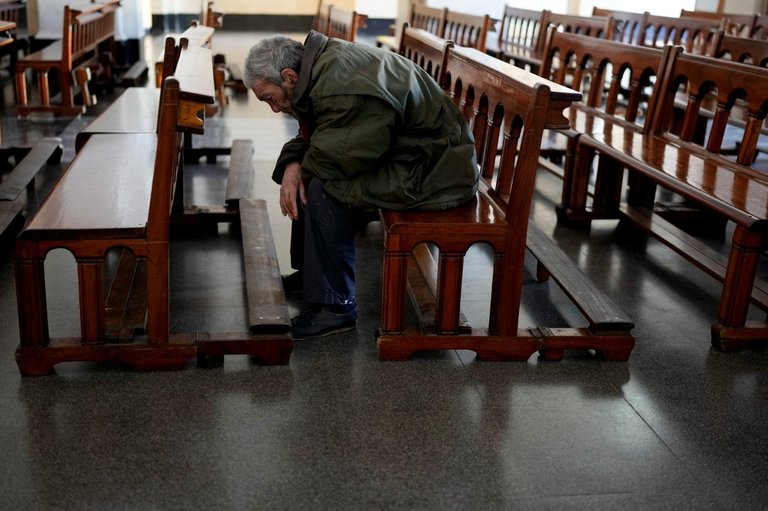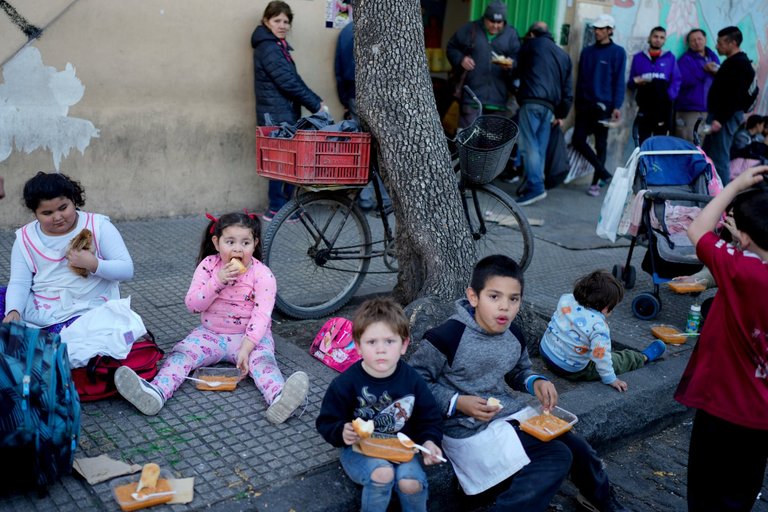The Latin American Report # 338

Last week it was reported that Argentina's poverty rate climbed to a worrying 53%, a predicted effect of the fiscal austerity policies put in place by the government of Javier Milei. The official poverty figure represents a growth of just over 11% with respect to the measurement of a year ago, while the indigence rate rose by 9 points. The Pink House, as expected, blames all this on the previous administrations, especially the Kirchnerist-Peronist style. Milei's thesis is that if he keeps the fiscal deficit at zero, prosperity will sprout for the benefit of “the good Argentines”, but first a hard Way of the Cross has to be passed.
“The government inherited a disastrous situation (...) Inflation is more poverty for the poorest. The best way to fight (it) is, first, to fight inflation”, said presidential spokesman Manuel Adorni commenting on the statistics, alleging again—and exaggeratedly, I think—that, had the adjustment not been applied, Argentina would have sunk into ‘a sea of absolute poverty’, with practically all the population below the poverty line. But, as journalist Natalia Kidd from Buenos Aires states, “[those] who do not understand macroeconomic arguments are the almost seven out of ten children under 14 years of age who are currently poor, nor the three out of ten who, in that population group, do not even cover their daily food needs”.
 Source
SourceThe middle class nightmare
As expected, Argentina's middle class has lost many members in recent months. According to this AP report, some who used to hire paddle tennis lessons, were loyal consumers of traditional beef or ordered pizza delivery have descended into a lower social stratum and now eat in soup kitchens and wear second-hand or donated clothes. The tragedy of informal employment has also crept into some households that were classified as middle class before the arrival of La Libertad Avanza at Balcarce 50. “Milei's government kills me. It's not very humane”, refers to the U.S. news agency a mother of three children who has felt shame and sadness when asking for emergency help.
On the other hand, another Argentine who claims to be from the middle class "that got lost" blames the Peronist government of Alberto Fernández for the misfortune he lives in. A 36-year-old woman who recognizes herself in a shameful situation, even when she is a beneficiary of a social program that the executive power highlights a lot, also continues to bet on Milei's prophecy. A couple who only cover one full meal a day by attending a soup kitchen near the presidential Rivadavia Avenue also sustains their hopes in the furious politician, perhaps because their misfortune, like the other two, began between 2018—with the right-wing Mauricio Macri in power—and 2021.
 Source
SourceThe above tells us that certainly, the current government has a point when it attacks previous administrations, but in my opinion, this is not an obstacle to criticize the lack of a concrete policy to rise from the dust those Argentines it received as handcuffed patients, victims of surely failed economic strategies. Yet, perhaps these cases, which do not involve people linked to value-added jobs, are not as worrying as that of a laboratory technician who works 42 hours a week in a hospital, “plus all the hours she works outside” that field. The $1,000 a month at most allows her not to drown with transportation and electricity rates, along with other expenses. “All (past) governments have been cutting back, but the truth is that in the last few months, there has been a huge drop,” she says, in a dynamic that corresponds to that suffered by higher education. “Since Milei arrived, I don't even eat asado”, says a female perfume street vendor.
 Source
SourceAnd this is all for our report today. I have referenced the sources dynamically in the text, and remember you can learn how and where to follow the LATAM trail news by reading my work here. Have a nice day.


Posted Using InLeo Alpha
Slashing costs does not alone save an economic endeavor. The remaining expenditures must be effectively used to increase incomes. Slashing costs alone eliminates the business endeavor, as Bain Capital Partners and KKR have turned into their business plans, by selling off the hard assets, taking any cash laying around, and terminating the operations of their investments.
That is an unsuitable policy for a state, since it's people are it's only actual asset - and in reality, it is the state that is the asset of the people.
Thanks!
Agree here. It's a big problem to have fiscal deficit in your main accounts, but to put it in zero doesn't means everything will rock by just letting the market to do its pretending magic. You need some strategy to improve the life of those people in the bottom, or in general for all. We are not talking of just sending free money but of showing them there is real path to build prosperity with their hands and minds, and so assist them in that pursue if needed. Thanks for your sound feedback again.